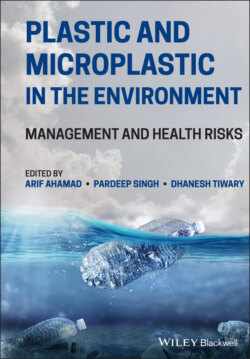Читать книгу Plastic and Microplastic in the Environment - Группа авторов - Страница 23
1.4.2.2 Removal of Organic Debris
ОглавлениеThe detection of MPs is hampered by organic particles that accompany MPs during collecting water samples. Thus, the removal of the organic debris is important to reduce the misidentification or underestimation of MPs. The detection step is conducted before or after the density separation. Organic debris is usually removed by strong acids (Cole et al. 2014; Imhof et al. 2016) or base solutions (Dehaut et al. 2016), or oxidation agents such as hydrogen peroxide (Ta and Babel 2019; Zhao et al. 2017). Some sensitive polymers (i.e. poly(methyl methacrylate) and polycarbonates) can be lost or damaged during the treatment (Dehaut et al. 2016; Li et al. 2018). Alternate chemicals for removing organic debris in samples are enzymes; these chemicals reduce damage to sensitive polymers. (Catarino et al. 2017; Mani et al. 2015). The method can be conducted by using proteinase K or mixtures of technical enzymes including proteinase, lipase, chitinase, amylase, and cellulose (Courtene‐Jones et al. 2017; Mani et al. 2015). The enzymatic digestion should be conducted under controlled conditions of pH and temperature. However, several disadvantages of using enzymes are reported. In comparison to chemical treatments, enzymatic treatments are expensive, time‐consuming, and may not completely remove the organic material (Courtene‐Jones et al. 2017).
